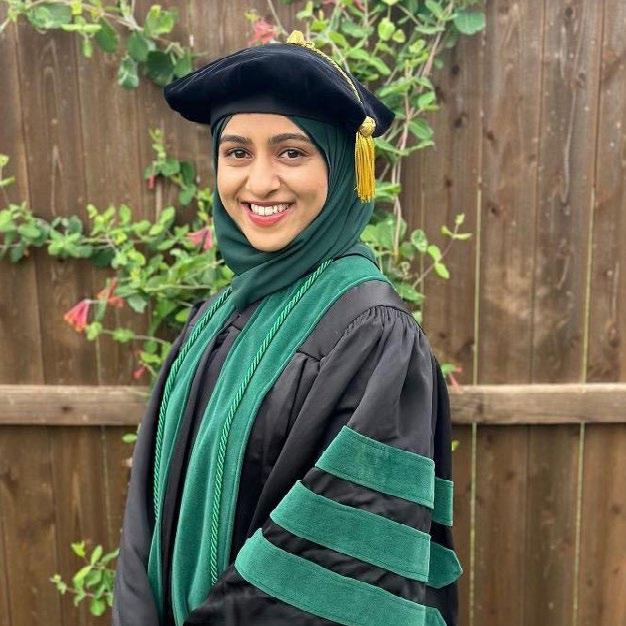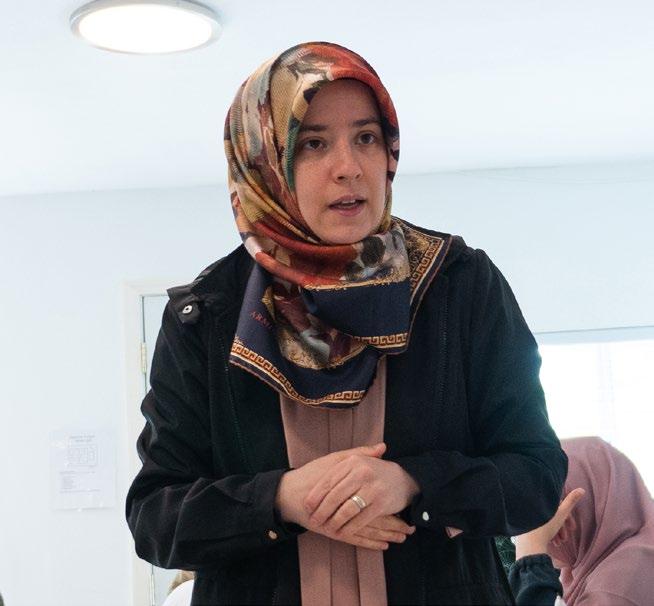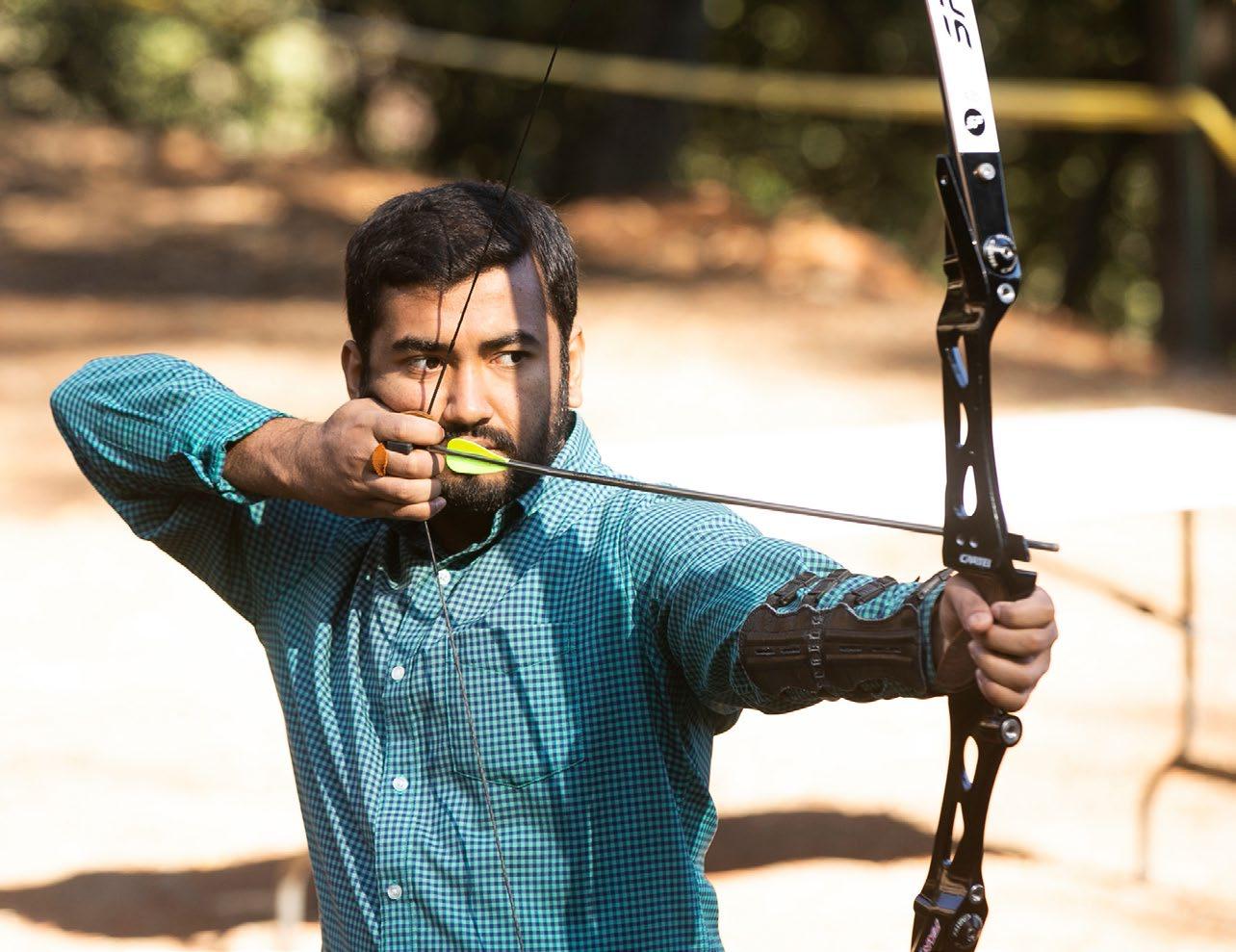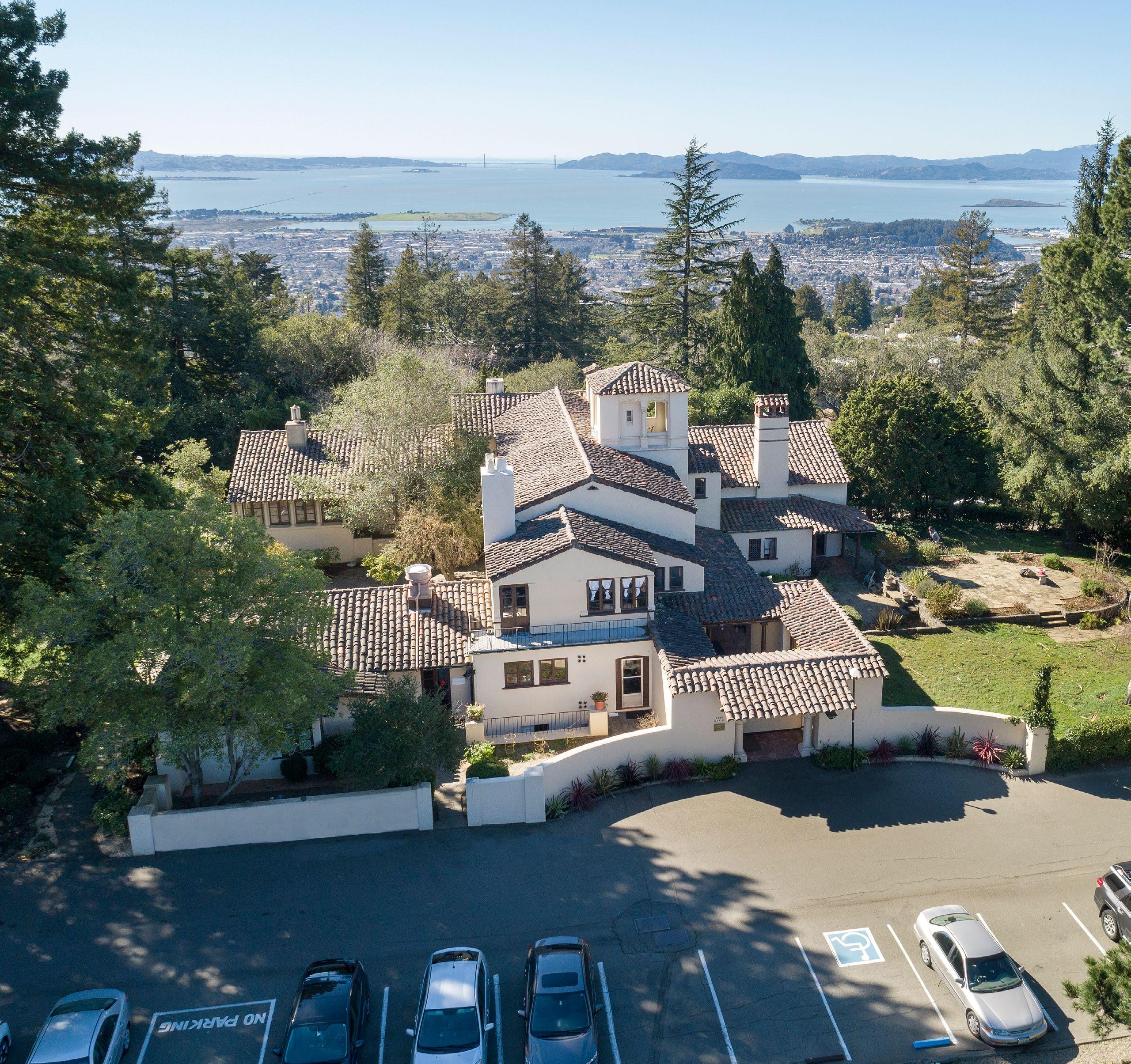BACHELOR OF ARTS IN LIBERAL AND ISLAMIC STUDIES
HIGHER EDUCATION FOR A HIGHER PURPOSE


HIGHER EDUCATION FOR A HIGHER PURPOSE

The greatest, truest, and only permanent good bestowed upon humanity is that of true knowledge. From such knowledge, all other goods flow, even faith. And this is why, at Zaytuna College, we have adorned our seal with the prayer Qul Rabbi zidnī ‘ilman (“Say: O Lord, increase me in knowledge”). For it is our knowledge of the world alone that enables us to discern a creator; hence, true knowledge will always lead to true faith. The greatest Qur’anic commandment is “Know that there is no god but the One True God.”
It is knowledge alone—and most importantly, knowledge of God— that differentiates us from beasts, making us unique among God’s glorious creation.
the qur’anic quotation is from surah ţā hā, verse 114.
s hould you choose to study at Zaytuna College, be assured that there is a design and a provident purpose in mind for everything we study here.
At Zaytuna College, we set our sights on nothing less than a true liberal arts education—the unique educational tradition that remains the common heritage of the three great faiths of Abraham: Judaism, Christianity, and Islam.
In fact, more than any other previous civilization, the Muslim civilization preserved and developed our most important arts: grammar, logic, rhetoric, arithmetic, geometry, harmonics, and astronomy. We at Zaytuna are reclaiming our heritage: the arts that free minds and hearts.
With that purpose always at the center, we will do our utmost to help you acquire the tools that you will need to pursue an active life of learning, reflection, and action—and to do so with humility and fallibility while rooted in purpose and piety.
You’ll study some of the most important timeless texts of Islam as well as a portion of the great works from our Western heritage—all this with students who we hope will become your lifelong friends and with a faculty that will be your devoted guides.

God willing, when our efforts along with yours come to fruition, we hope that you will join a growing line of Zaytuna graduates who are contributing to the betterment of a beleaguered world as human beings who have learned how to learn—and, with God’s help, will succeed in any vocation— law, medicine, religious leadership, scholarship—to which God calls them.
The promise of a liberal arts education awaits you at Zaytuna College.
Yours sincerely,
Hamza Yusuf President, Zaytuna c ollegef ounded in 2009 in Berkeley, California, Zaytuna College seeks to ground students in the Islamic scholarly tradition as well as in the cultural currents and critical ideas shaping modern society. Zaytuna was accredited by the Western Association of Schools and Colleges in 2015, becoming the first accredited Muslim liberal arts college in the United States.

Zaytuna offers an innovative Bachelor of Arts in Liberal and Islamic Studies that integrates the Islamic and Western traditions of higher learning, with emphasis on teaching the tools of learning, the foundational texts of both traditions, and the Arabic language. It also offers an MA program in Islamic Texts that provides students with higher-level access to the Islamic tradition through the study of Islam’s primary sources.
The College has two campuses in a neighborhood known as “Holy Hill,” home to the Graduate Theological Union (GTU), the largest consortium of seminaries and centers for the study of religion in the nation, and within blocks of UC Berkeley, a premier research university. This setting gives Zaytuna’s students an unparalleled opportunity to engage with educational communities from different faith traditions.
We do our best to ensure our students complete their education debt-free. Students apply for and receive financial aid directly from Zaytuna in the form of merit scholarships and need-based aid. Our admissions decisions do not take financial need into consideration as we seek dedicated students from all socioeconomic backgrounds and experiences.
Annual Undergraduate Program Costs
• Tuition: $20,000
• Nonrefundable enrollment (one-time payment): $250
• Housing: $10,500
• Refundable security deposit (one-time payment): $500
a t Zaytuna c ollege , we are restoring the broad-based, holistic tradition of what in the West was called the liberal arts and in the Muslim civilization was known as comprehensive studies (al-dirāsāt al-jāmi¢ah), which lead one to become an adīb, which approximates the English concept of the erudite person.
The curriculum for Zaytuna’s Bachelor of Arts in Liberal and Islamic Studies begins with the trivium—courses in grammar, rhetoric, and logic—and an intensive study of the Arabic language as students progress through courses in theology, law, history, philosophy, science, and literature while studying classical texts from both the Islamic and Western traditions.
Term Year 1
Year 2
Year 3
Year 4
Summer n/a Intermediate Arabic 3 (10 units) n/a n/a
• Intermediate Arabic 1 (5 units)
• Tajwīd 1 (1.5 units)
• Introduction to the Qur’an
Fall
• Islamic Law: Purification and Prayer
• Trivium Seminar in Grammar
• Trivium Seminar in Logic
• Swimming (0.5 units)
• Intermediate Arabic 2 (5 units)
• Tajwīd 2 (1.5 units)
• Creedal Theology
Spring
• Islamic Law: Fasting, Zakat, and Pilgrimage
• Prophetic Biography
• Trivium Seminar in Rhetoric
• Swimming (0.5 units)
• Arabic Grammar and Texts 1 (4 units)
• Qur’anic Sciences
• Prophetic Tradition
• Economics
• Islamic History
• Archery (0.5 units)
• Arabic Grammar and Texts 2 (4 units)
• Seminal Ancient Texts
• Logic in the Islamic Tradition
• Politics
• Euclid’s Elements
• Archery (0.5 units)
• Advanced Arabic Morphology
• Islamic Family Law
• Comparative Theology
• Kalam Theology
• Philosophy
• Research Methods Seminar (1 unit)
• Horseback Riding (0.5 units)
• Advanced Arabic Grammar
• Principles of Islamic Jurisprudence
• Constitutional Law
• Readings in Muslim Spirituality
• Classical Muslim Texts and Commentaries
• Horseback Riding (0.5 units)
Qur’anic Memorization (Ḥifẓ) (1 unit)
Self-Paced
• Arabic Rhetoric and Literature
• Al-Ghazālī
• Principles of Democracy
• Astronomy in the Islamic Tradition
• Contemporary Muslim Thought
• Senior Arabic Seminar
• Islamic Commercial Law
• Islamic Inheritance Law
• Ethics
• Apologetics
Service Learning Hours and Capstone Paper (by junior year) n/a
• Thesis Research (Fall: 1 unit)
Optional n/a Honors Program n/a
All graduation requirements are 3 units, except where noted otherwise.
“Perhaps most fundamentally, the practice of law is a meeting of logic and language. Zaytuna, then, prepares the lawyer not by teaching the rote skills of advocacy and argument, but by shoring up those fundamental skills of logic and language in both the Western tradition familiar to modern legal practice and in the Islamic tradition which unlocks otherwise closed avenues of analysis. Master the basics, and you have mastered the discipline.”

class of 2020, recently graduated from g eorgetown u niversity l aw c enter
• Thesis Writing (Fall: 1 unit)
• Thesis Submission (Spring: 1 unit)
Preceptorial Courses (units determined by faculty per course)
—Abdullah Qureshi
In keeping with the teaching of two traditions, Zaytuna’s faculty members have qualifications from traditional Islamic institutions and from modern Western universities, providing students a distinctive and integrated educational experience.

“
At Zaytuna College, our Arabic program offers students a comprehensive and enriching Arabic education, with a focus on both receptive and productive language skills. But there’s more – our program invites students to dive into classical Arabic grammar, exploring a rich, unbroken heritage of wisdom and tradition rooted in classical Arabic language sciences. We do more than teach Arabic; we establish an understanding of the methodological perspective inherent in the classical Arabic language sciences. We’re opening doors to a world of knowledge that has echoed throughout the centuries. Immerse yourself, and let the language of the Qur’an illuminate your path.”
d r. e sma s encal teaches Arabic courses at Zaytuna College.
“
A Zaytuna education provides the knowledge and tools of learning that are foundational for cultivating virtue, both intellectual and moral, as an expression of the remembrance of God. Moreover, its unique curriculum prepares students for the critical task of engaging modernity through Islam’s rich scholarly heritage.”
shaykh f ara Z k han teaches courses in Islamic theology, logic, and prophetic biography.


“
Zaytuna provided me with an Islamic worldview through which I now approach my work as a resident psychiatrist. To help my patients achieve mental wellness, I endeavor to align them with the way God intended for us to live: centering our lives around Him, remaining within His legal bounds, pursuing productivity and meaning, cultivating sincere relationships, healing from our traumas, purifying our hearts, eating pure foods, exercising our bodies.
Zaytuna showed me that Islam can bring beauty, healing, and light to any field we choose to bring it to.”
r.
Service Requirement: Students at Zaytuna complete at least 50 hours of community service or civic engagement as part of their graduation requirements. They participate in projects, either during the semester or during their breaks, that place them in a variety of real-world experiences, from teaching and mentoring to service projects in underserved communities. Through guided reflections and writing assignments, students connect these experiences to what they learn inside the classroom and to their efforts toward spiritual and moral growth.
Sunnah Sports: The tradition of sunnah sports is based on the saying of the Prophet s, “Teach your children swimming and archery,” and on ¢Umar b. al-Khaţţāb’s statement, “Teach your children swimming, archery, and horse riding.” Inspired by these traditions, Zaytuna College includes swimming, archery, and horseback riding in its curriculum. Liberal education cultivates lifelong habits that are a result of deliberate, focused, and disciplined effort. The College’s Sunnah Sports curriculum aspires to cultivate these virtues through athletics and integrates the spiritual development with the development of the mind and of the body.


Talal Ahdab, MASc
Shaykh Talal is a licensed scholar in the Islamic sciences, with specialties in kalām theology, jurisprudence, language, and legal theory. In addition to his decades of traditional study, Shaykh Talal is an electrical engineer with MASc from the University of Ottawa.
Abdullah Ali, PhD
Dr. Ali is a scholar of Islamic law and theology. He completed his traditional education at the prestigious university al-Qarawiyyin in Fez, and his PhD at the Graduate Theological Union.
Tahir Anwar, BA
Imam Tahir is a scholar of the Islamic sciences, specializing in Hanafi jurisprudence, hadīth, tafsīr, and legal theory. He received his ‘ālimiyyah degree from Darul Uloom Falah e Darain.
Ali Ataie, PhD
Dr. Ataie is a scholar of biblical hermeneutics and Qur’anic sciences. He received his MA in Biblical Studies from the Pacific School of Religion and his PhD from the Graduate Theological Union.
Cindy Ausec, PhD
Dr. Ausec is a scholar of ancient history, who wrote her thesis on ancient Egyptian kingship. She received her MA in Classical Art & Archaeology from the University of Arizona and her PhD in Near Eastern Religions at Berkeley.
Rabia Bajwa, PhD
Dr. Bajwa specializes in teaching Arabic to non-native speakers, in its Qur’anic, Classical, and Modern Standard forms. She received her MA/PhD in Arabic Linguistics at Georgetown University.
Hatem Bazian, PhD
Dr. Bazian is a scholar of religion, politics, and globalization. In addition to his role at Zaytuna, he is a professor in the departments of Near Eastern and Ethnic Studies at UC Berkeley, where he received his PhD in Near Eastern Studies.
Amar Bellaha
Qari Amar is a ĥāfiz and award-winning reciter of Qur’an. He received his license to teach the science of tajwīd and Qur’an memorization from the Imam Nafi School of Qur’an and Islamic Studies in his native Morocco.
Phillbert Cheng, PhD
Dr. Cheng is a scholar of ancient and late antique philosophy. His research explores Aristotelianism, Platonism, Scholasticism, and the philosophy of education. He received his MA in Philosophy from the Dominican School of Philosophy and Theology and his PhD at the Graduate Theological Union.
Uzma Husaini, PhD
Dr. Husaini is a scholar of the Islamic sciences, specializing in tajwīd. She received her license in tajwīd from Shaykh Shukri al-Lahafy and her PhD from the Graduate Theological Union.
Youssef Ismail, PhD
Dr. Ismail is a scholar of the Islamic sciences and a mechanical engineer. He received his MS and PhD in mechanical engineering from Stanford and his ijazāt in Maliki jurisprudence from Mauritanian scholars.
Lawrence Jannuzzi, PhD
Dr. Jannuzzi is a historian and legal scholar, with specialties in medieval theology, political theory, and intellectual history. He received his JD and PhD from Berkeley.
Faraz Khan, BA
Shaykh Faraz is a scholar of the Islamic sciences, specializing in Ash’ari and Maturidi theology, Hanafi jurisprudence,
hadīth and sīrah, and logic. He pursued his traditional studies in Jordan, receiving his license to teach after a seven-year program. His translation of Imam Sabuni’s Introduction to Islamic Theology is part of the Zaytuna Curriculum Series.

Yusuf Mullick, BA
Ustadh Yusuf Mullick is a scholar of the Arabic language, who has taught the language for over a decade. His classes cover language, rhetoric, grammar, and literature. He also serves as the Arabic editor for Renovatio, the journal of Zaytuna College.
Francisco Nahoe, PhD
Fr. Francisco is a scholar of literature, theology, and philosophy. A Franciscan friar, he received his STB in Theology from the Pontifical Seraphicum, an MA in Comparative Literature from Dartmouth, a ThM in Biblical Studies from Harvard, and a PhD in Renaissance Studies from Harvard.
Esma Sencal, PhD
Dr. Sencal is a scholar of the Arabic language who specializes in its grammar and rhetoric as well as modern linguistics. She received her MA in Civilization Studies from Fatih Sultan Mehmet Waqif University, an M.Sc. in Applied Linguistics from the University of Edinburgh, and a PhD in Arabic Language and Rhetoric from Marmara Univetsity.
Harun Sencal, PhD
Dr. Sencal is a scholar of Islamic finance, with a specialized interest in the areas of Islamic political economy and Islamic financial entities. He received his PhD at Durham following a career in computer science, with a MSc in the subject from Jordan University of Science and Technology.
